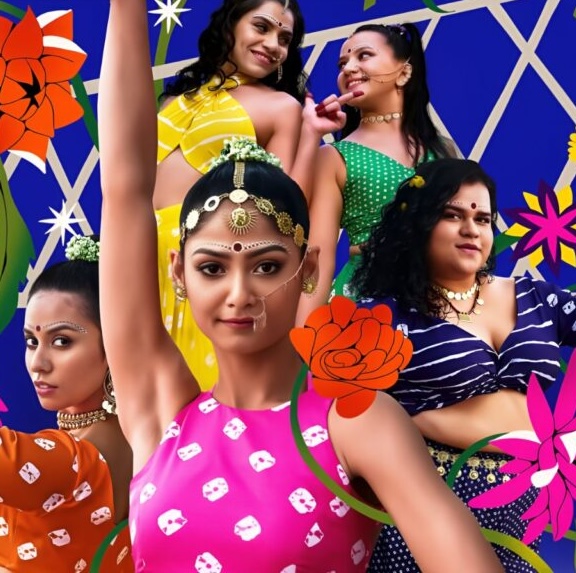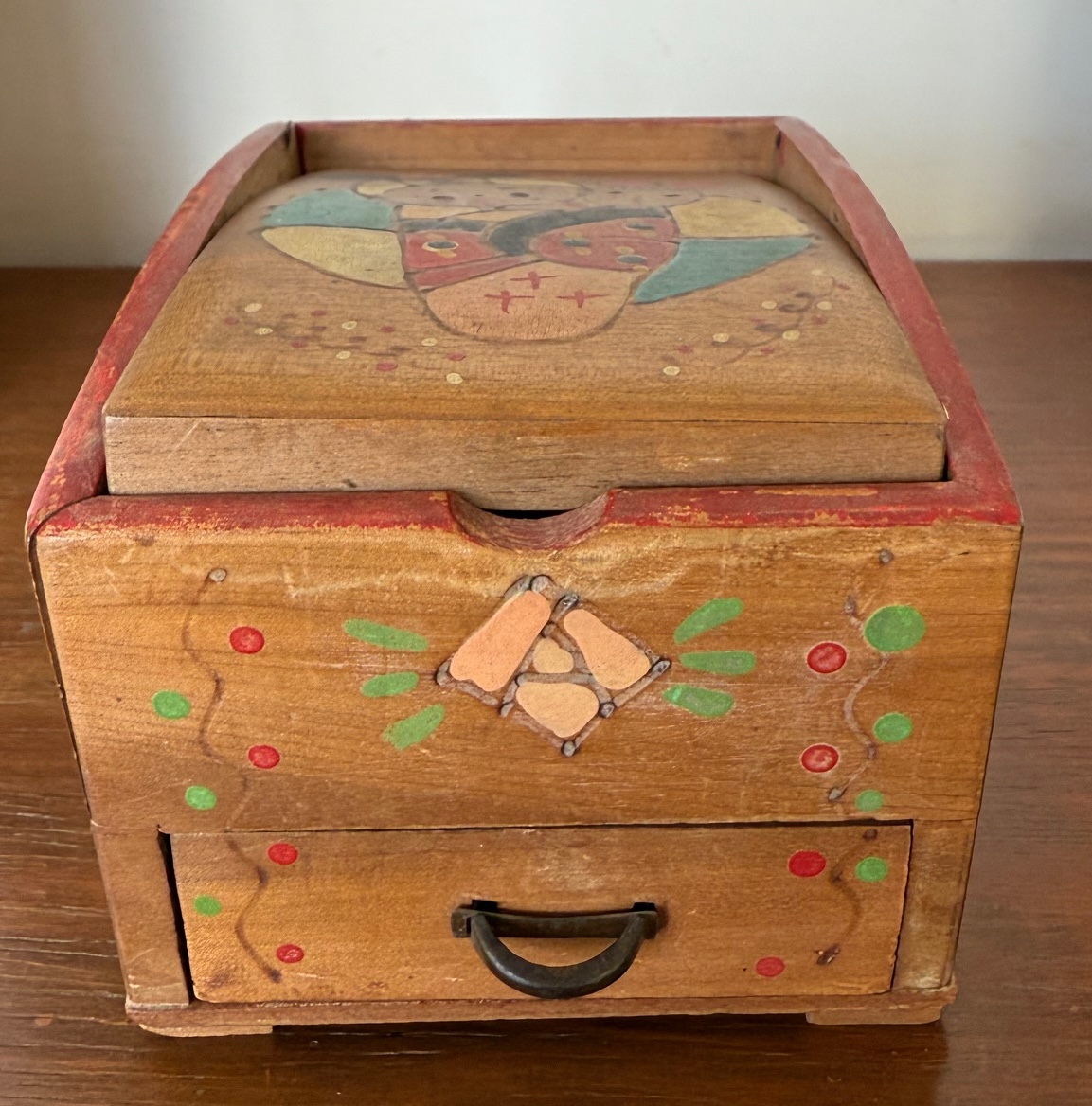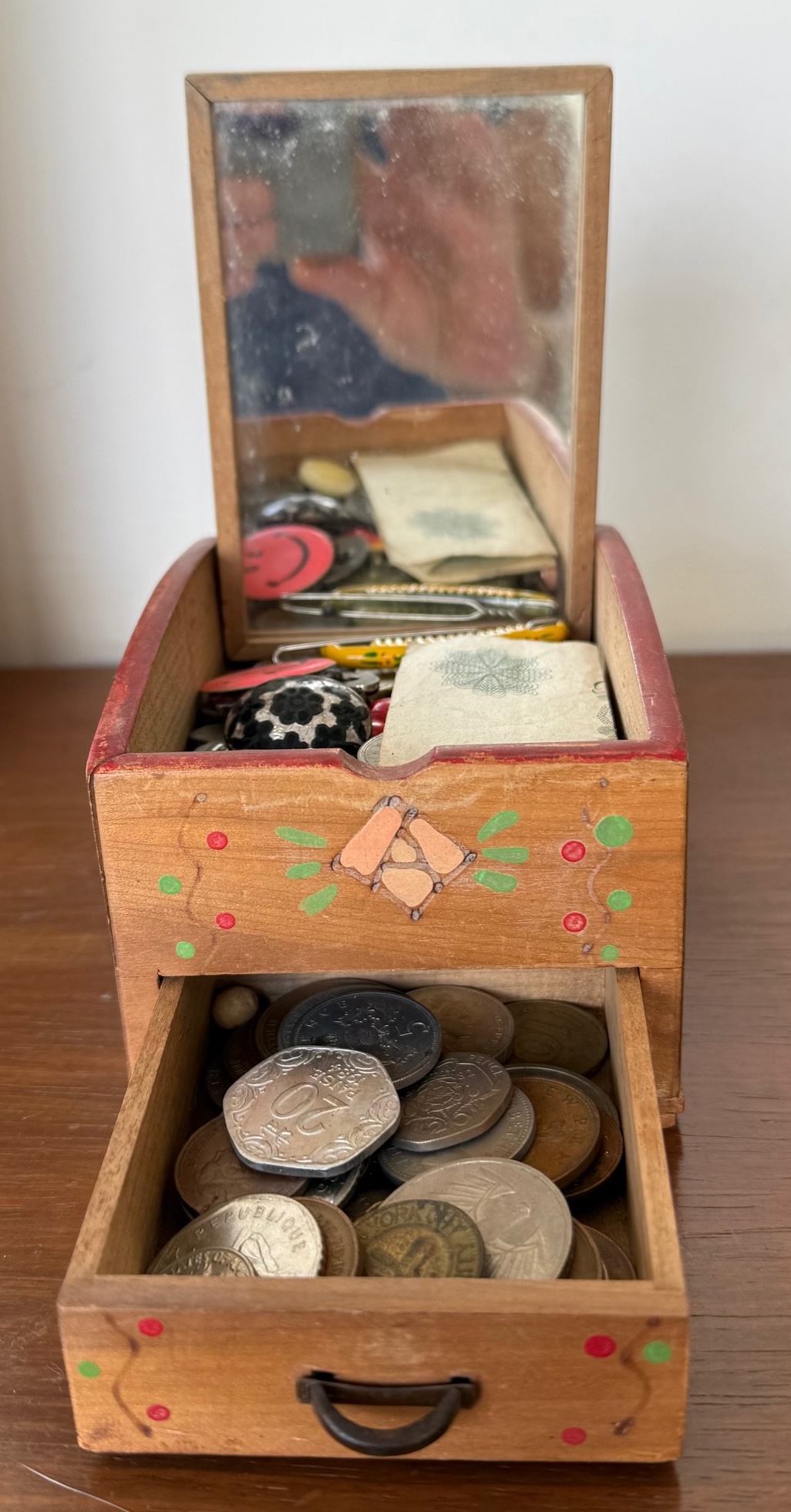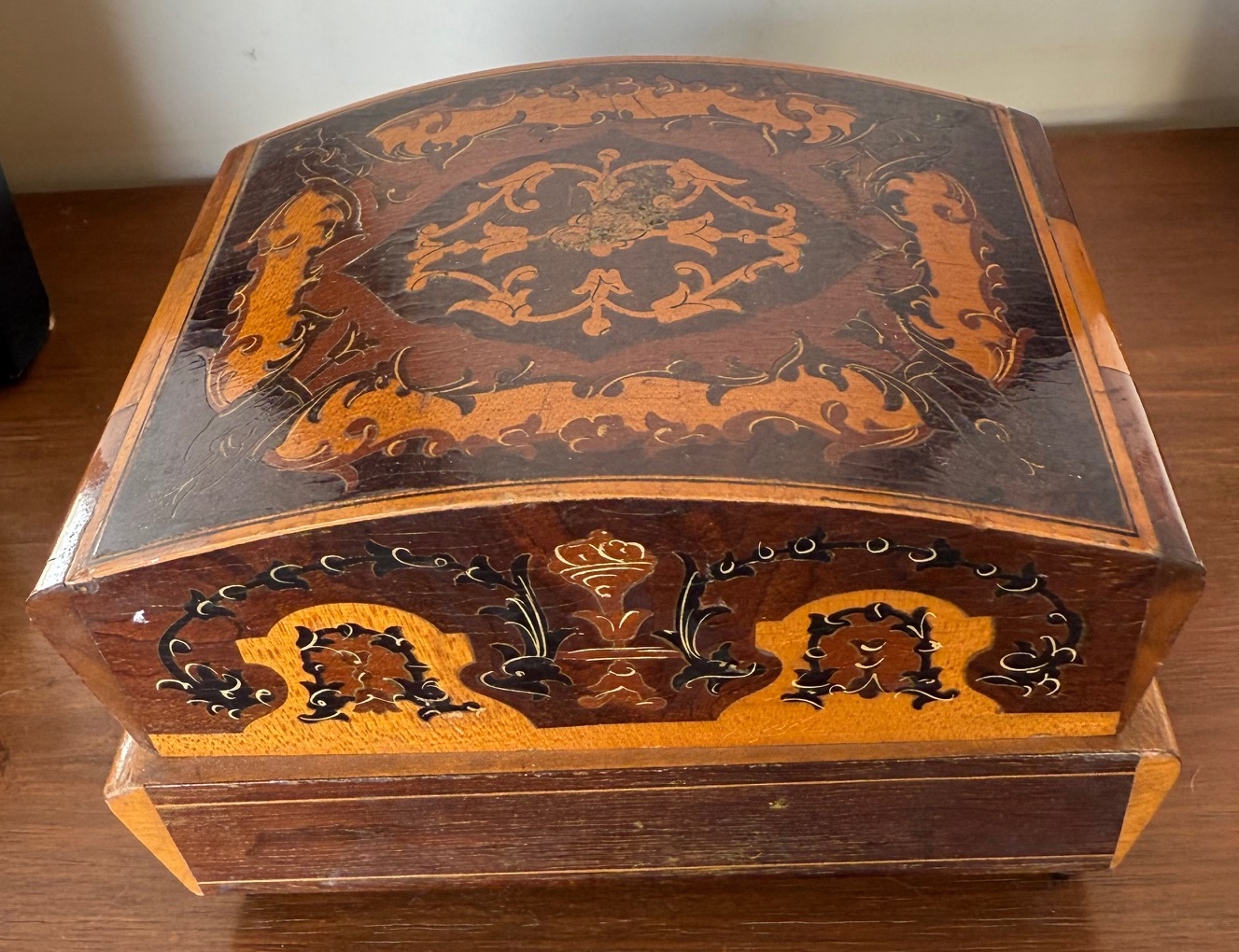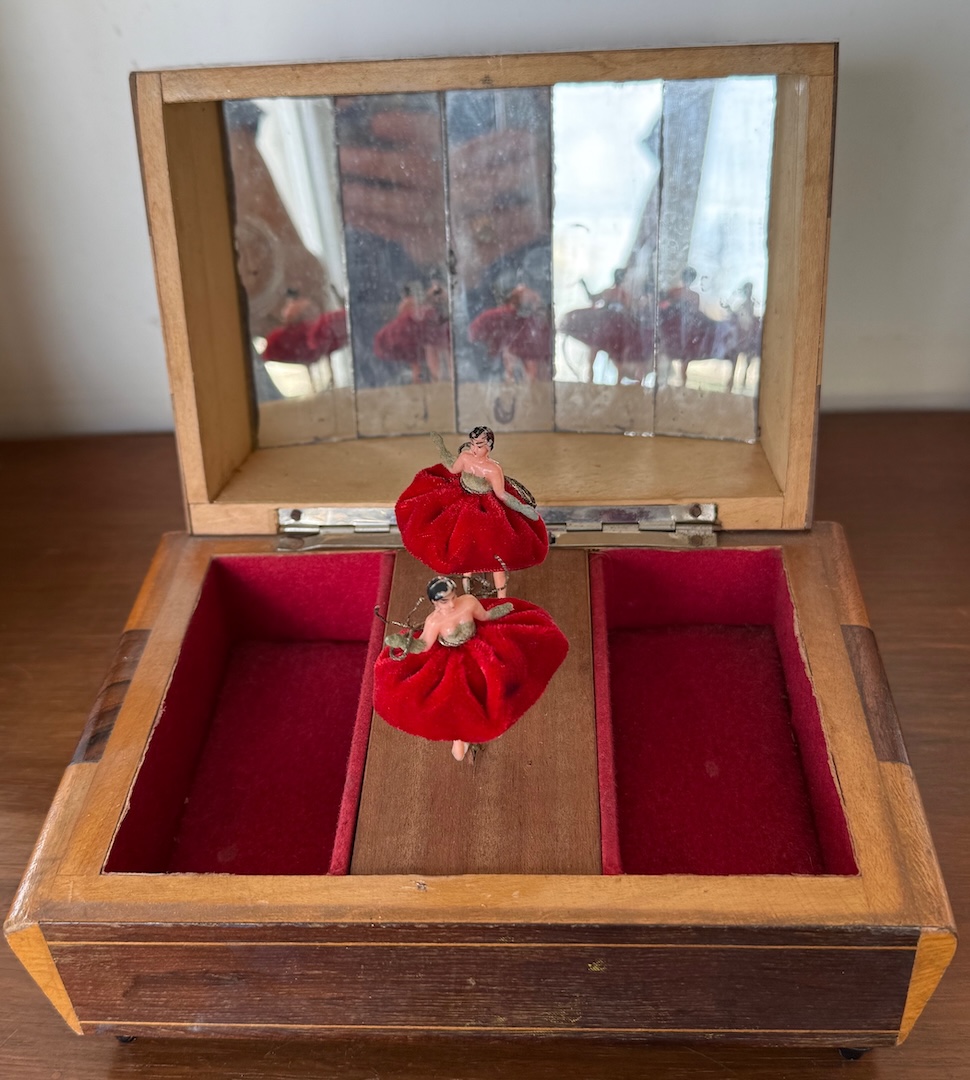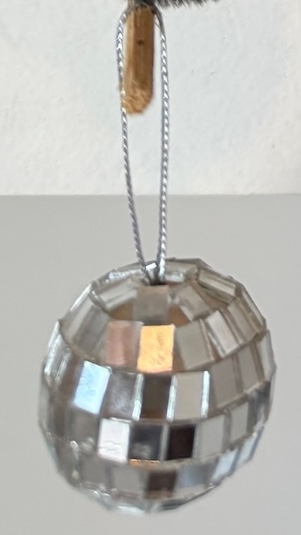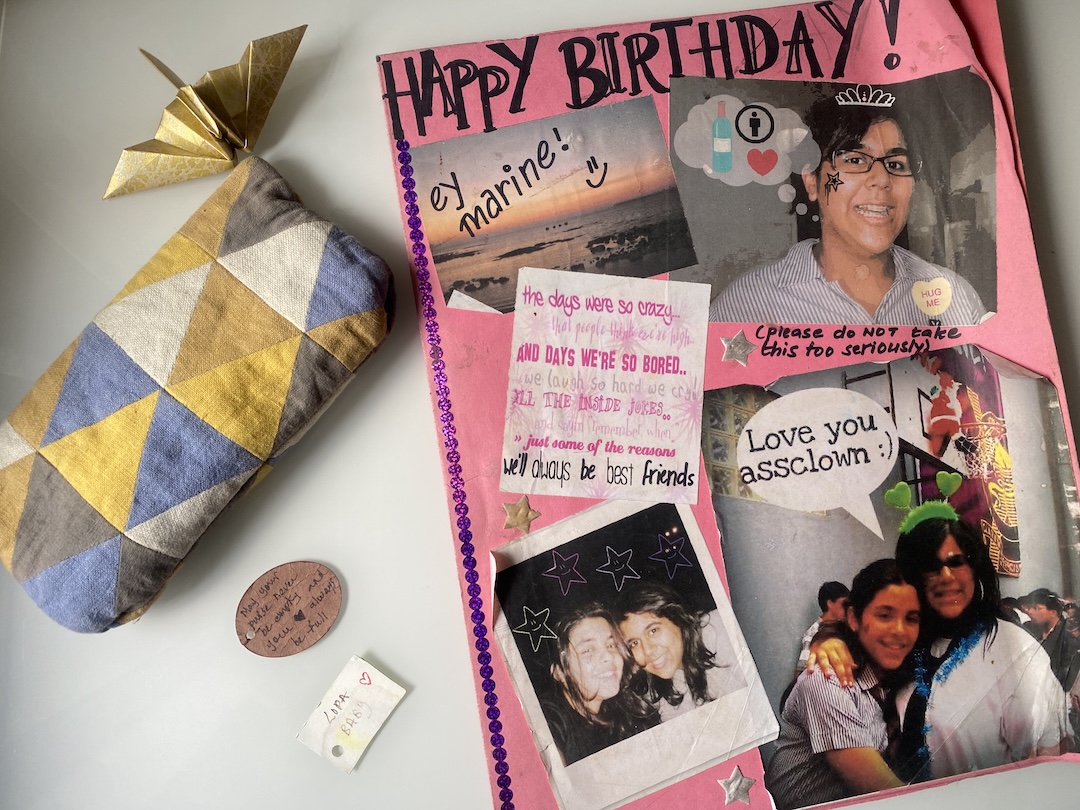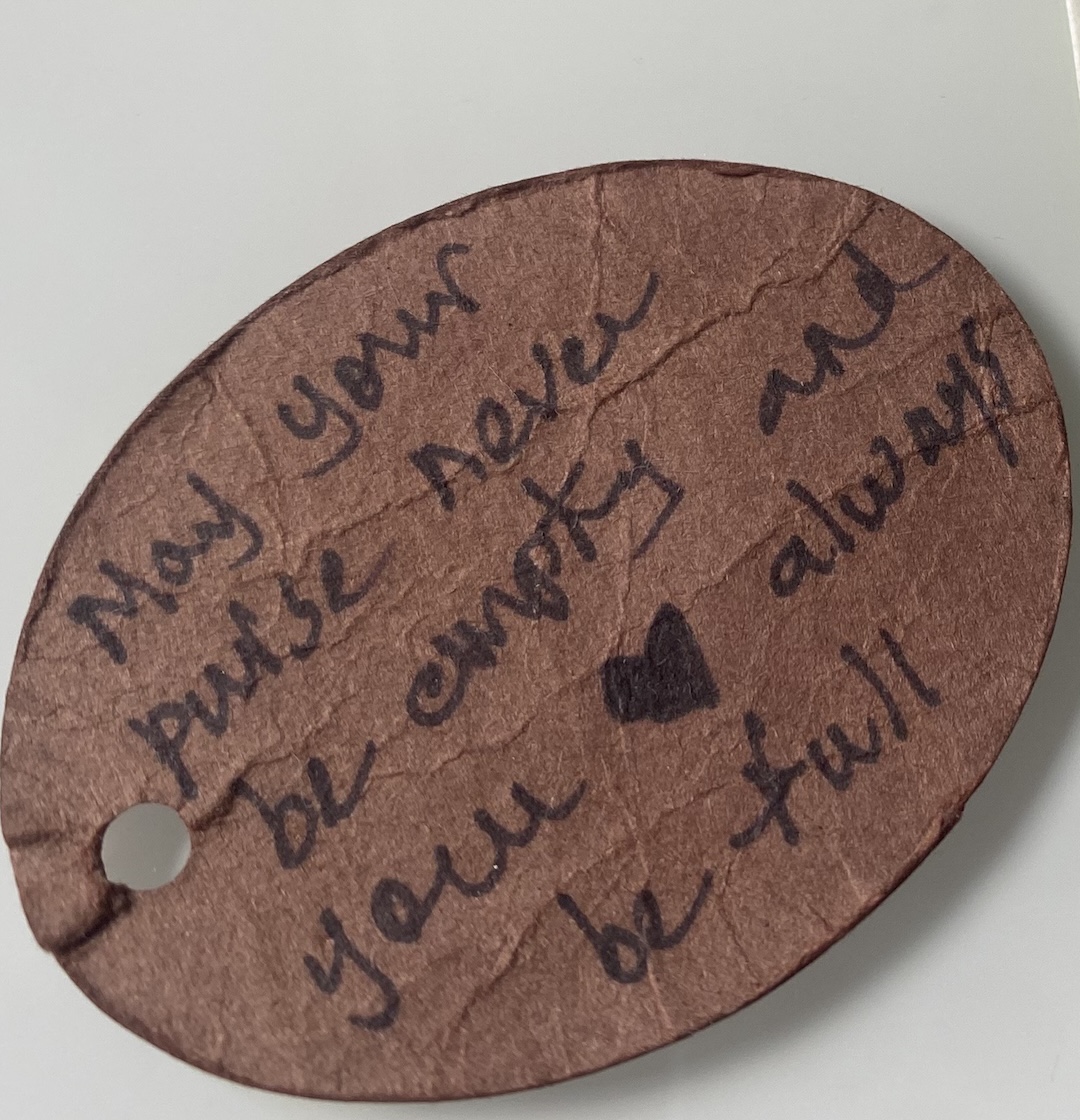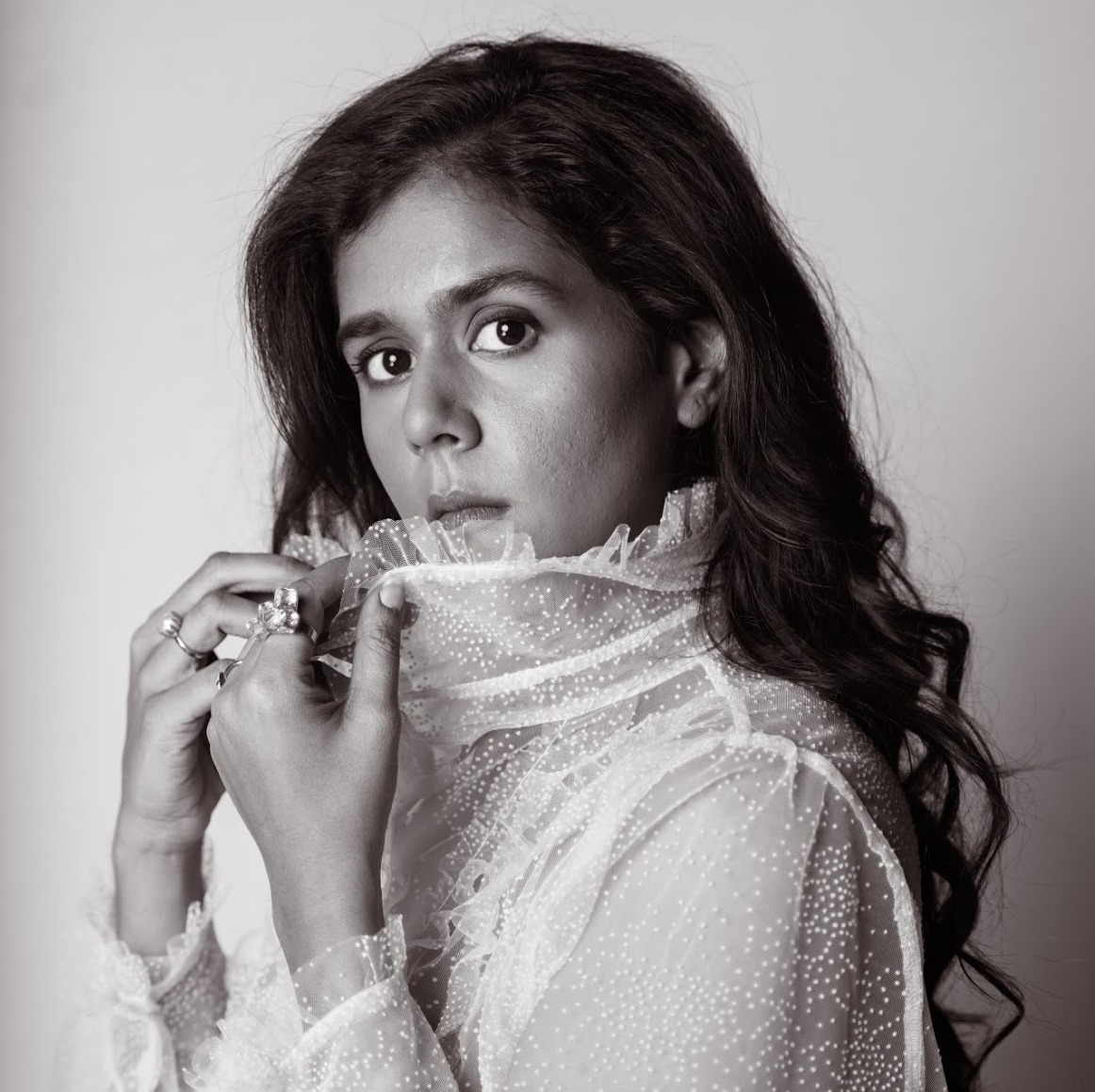Swedish Death Cleaning - A global challenge?

The director and cast of the TV series Waack Girls (Amazon Prime) explain why saving stuff is so common in India, and around the world
I used to think the urge to save things was a mostly local habit, a byproduct of American culture. But was I ever wrong. I learned this from an unexpected source: the director, screenwriter, and photographer Sooni Taraporevala, who has lived almost all of her life in India.
As it turns out, Sooni and I have something in common. We're both savers. In fact, I convinced Sooni to join me on I Couldn't Throw It Out so we could prove that an instinct for saving things is as strong in Mumbai -- where she lives -- as it is 8000 miles away in the New York City suburbs where I live.
To stress that point, Sooni brought along two young friends -- Mekhola Bose and Rytasha Rathore. They're the stars of the TV series Waack Girls, which Sooni directed. I was surprised to learn that – even though they're decades younger than I am – Mekhola and Rytasha are big savers. They told us what they've saved, why they saved it, and what they'll do with it.
Mekhola teaches the fine art of waacking in the Amazon Prime TV series Waack Girls (above) -- and in real life.
Though I didn't plan to go as far as India to test Swedish Death Cleaning (a system for reducing your possessions before you leave the planet), it all started when I watched Yeh Ballet, a Netflix movie that Sooni directed. The story about two boys who overcome impossible odds to become dancers was so heartfelt and engaging that I got hooked. So I decided to watch Sooni's TV series Waack Girls, about a team of young women who compete to be the champions of a wild dance form called waacking. Once again, the story (and beautiful filming) reeled me in.
Because I knew Sooni from college, I decided to write to her to rave about her creations. That's when Sooni told me that she can't toss the treasures she saves. In other words, she – like me – is a failure at Swedish Death Cleaning. It's an international problem. Who knew?
I was particularly curious to hear what Sooni had saved. For instance -- during her long association with the movie director/producer Mira Nair – Sooni wrote the script for several hit films, including Mississippi Masala, The Namesake, and Salaam Bombay. I wondered if she saved many versions of each script. Sooni is also a photographer who has contributed images to the collections of New York's Metropolitan Museum and Dehli's National Gallery of Modern Art. So I wondered: What about all the outtakes? Does she save them too?
But what she showed me was much more sentimental. Here's the music box that Sooni saved since she was 5.
Some of the original contents are still in it:
And here's the vintage jewelry box that is featured prominently in Sooni's movie Yeh Ballet:
Sooni also keeps mementoes from her creative projects. Here's the tiny glitter ball that she got as a gift from Mekhola, while they were filming Waack Girls:
Rytasha, who plays the driven (but lovable) dance group manager on Waack Girls, tends to save gifts from people she loves. The birthday card from a childhood friend has been with her for at least 16 years. Other saved treasures include an origami bird that a friend made for her, and a cloth purse she got from Sooni.
Here's a close-up of the handwritten message from Sooni that came with the purse:
Photos of Mekhola's treasures are coming soon. But, in the meantime, hearing these three talented women should give comfort to savers all around the world. Whatever country you're in, you are not alone.
Have thoughts about this episode? Send us a text
More info, photos, and transcript: throwitoutpodcast.com
Don't miss a thing: Join our mailing list
Do you save stuff you can't throw out? Tell us about it
Want to show support? Please rate/follow us wherever you get your podcasts.
I Couldn't Throw It Out, Season 3, Episode 35
International Instincts? Swedish Death Cleaning in India
Michael Small:
Hello and welcome to I Couldn't Throw It Out, the podcast where we dig out the things we've saved for years and try to throw them out. On this episode, we're going international with the screenwriter of an Oscar-nominated movie and two TV and movie stars who live thousands of miles across the Atlantic. They explain a kind of universal instinct that inspires many of us to save things.
Mekhola Bose:
It reminds me of who I am and it reminds me of the things that I value and the way I want to feel. So whenever I look at these things, it makes me feel like life is good.
Michael Small:
To hear more about what these really talented women have saved and why they saved it, keep listening.
[Song excerpt begins]
I couldn't throw it out
I had to scream and shout
Before I turned to dust I've got to throw it out
[Song excerpt ends]
Michael Small:
Today on I Couldn't Throw It Out, we are crossing cultures in a way we have never done before. In this case, we're taking you about 8,000 miles across the Atlantic to India. And this whole thing began when I watched a movie that's now on Netflix. It's called Yeh Ballet. That's Y-E-H Ballet. It's about two boys in Mumbai who overcome huge obstacles and become ballet dancers. I almost never watch movies about dancers, but I got totally involved in their story to the point where I went on to watch a TV series also set in India. It's called Waack Girls. That's W-A-A-C-K, girls. This one is on Amazon Prime and it's about young women in Calcutta who compete to be the champions of a wild dance style called waacking. Once again, I was totally into the lives of the characters, couldn't stop watching. So it's probably no surprise that both Yeh Ballet and Waack Girls were directed by the same person. Her name is Sooni Taraporevala. If that rings a bell, maybe it's because she also wrote the script for several major movies, including Mississippi Masala, which got rave reviews in 1991, The Namesake, which was a hit in 2007, and Salaam Bombay!, which was nominated for an Oscar in 1988, and it won more than 25 awards worldwide. Sooni is also a photographer who's shown her work at the Tate Gallery in London, the Met Museum in New York, and the National Gallery of Modern Art in Delhi. But Sooni has one little known credit. When she was in college, she used to eat lunch with a gang of students that included me. So after all these years, I tracked her down and Sooni is here right now to talk with us today, direct from Mumbai. Hello, Sooni.
Sooni Taraporelava:
Hi Michael, so great to see you again.
Michael Small:
It's great to see you too. And at this point, someone might wonder why I twisted your arm and got you to join I Couldn't Throw It Out. But the answer, as you know, is that we discovered we have something in common. You said, Sooni, that you've been saving things your whole life too, right? You brought some treasures that we're going to talk about, right?
Sooni Taraporelava:
Yeah.
Michael Small:
I'm still stuck on the fact that you're so far away and we have this common instinct. And I was just curious if there's anything in the culture of India that I wouldn't be familiar with that would lead you to save things.
Sooni Taraporelava:
Michael - hoarding is a universal instinct. I'm a huge hoarder.
Michael Small:
Of course, we're not supposed to call ourselves hoarders.
Sooni Taraporelava:
Oh, sorry.
Michael Small:
We are curators. We don't save everything. We can selectively curate what we save.
Sooni Taraporelava:
That's what I'll tell my husband now. Thank you.
Michael Small:
Yes, you're a curator. You travel a lot though. Like where does all this stuff stay?
Sooni Taraporelava:
That's a very good question. I manage. It's small stuff. It's not big stuff. It's like little things that only make sense to me. Reminders.
Michael Small:
Right, but what really blows my mind is that you talked with the cast of Waack Girls about this podcast, thank you very much, and they insisted that they save things too. So it's not just international, it's intergenerational. That's why I convinced you to bring along two of the lead actresses from Waack Girls and give them a chance to tell us what they save and why they save it. Sooni, could you do the honors and introduce them?
Sooni Taraporelava:
The two leads are with us here, Mekhola Bose, who is a fantastic dancer. I found out about waacking entirely through her. Like everybody in the world, I had no idea what waacking was, till Mekhola walked into my life. And she plays the reluctant at first leader of the group. And Rytasha Rathore, who plays the young up and coming scrappy manager.
Michael Small:
And I really want to hear from them because they are a different generation from us. And so the kinds of things they save will be different from us. But before we get to them, Sooni, can you tell us why you wanted to make this TV show and how you came up with the story?
Sooni Taraporelava:
Okay, so I was casting for Yeh Ballet and I had a role in Yeh Ballet of a really kick-ass, badass, young dancer and my casting director looked high and low, couldn't find anything. And then serendipity destiny, I don't know what, I got an email in my inbox announcing a dance contest in a place not far from where I live. And so I went there with my assistant and -- you'll think I'm exaggerating, but this is really the truth. As soon as I walked in, I saw Mekhola on stage competing and was totally mesmerized by whatever she was doing. I met her the next day. I said, I saw you yesterday and I loved what you did and have you ever acted before? And she said, no. I said, would you like to try? And she said, yeah, sure, I could try. Later, she told me that she thought I was one of the competitor's mothers. Anyway, she auditioned. She was magnificent. She was exactly what I wanted. After Yeh Ballet, I was editing and she came to meet me in Mumbai for lunch from Calcutta. And I asked her, what were you doing? Because her dance was something I loved, but I'd never seen it before. And it was exactly the style I was looking for, in Waack Girls we say it's Waack boom pow. That's what it was. It was like really bold and dynamic and in your face. And she told me about waacking. And that's when I first learned about waacking. And that's when I first was inspired to create something around this dance style and to feature Mekhola in a leading role.
Michael Small:
I've got to tell everyone when you see her in Yeh Ballet and when you see her in Waack Girls, you are not going to believe that this is her beginning of her acting career. I am shocked to hear that. She has such a presence on the screen. It's just amazing. So, Mekhola, now we turn to you. Before we talk about the things you've saved, can you tell us a little bit about Waack Dancing? How did you find out about it? When did you start doing it? What is it?
Mekhola Bose:
Sure. So, waacking is a dance style born in the LGBTQ clubs of Los Angeles in the 1970s disco era. It was originally called punking and over the years it's evolved into the term waacking because the arm visual is the most notable part of the dance. I started waacking about 12 years ago and I found it on the internet because I was in a hip hop group and all the guys were good at locking, popping, breaking and house dance and I wanted something that I could do that they couldn't and I came across a video of this Japanese dancer called Mizuki Flamingo and I started imitating that and I started contacting American dancers online and learning more about it and that's how eventually I connected the dots and came together with this style.
Michael Small:
Were people doing it in India or did you bring it to India?
Mekhola Bose:
No, I don't think people were doing it in India at that time. They would maybe use a movement or two, but there was no awareness of what the dance is, the history behind the dance and all of that.
Michael Small:
And you'd never been to Los Angeles, you got it through the internet.
Mekhola Bose:
Yeah.
Michael Small:
Is it specifically a dance for women or do men ever do it?
Mekhola Bose:
It was started by men, the dance. And they were called punks. They would rebel against the discrimination they faced in society in the 70s. And they would call it punking, which is a kind of behavior with posing on the music. And then the dance slowly evolved into arm styles. And now it's really vast because the music has evolved.
Michael Small:
Is there any similarity to voguing?
Mekhola Bose:
They say they are sister styles, but then the time and the place is different. Like, voguing is from the Bronx and waacking is from Los Angeles. And eventually they did cross paths because a lot of the dancers used to do both when they would travel between the East Coast and West Coast. It looks similar because of the arms performance, but waacking didn't start with an arms performance. It started with behavior and posing because they were inspired by Hollywood divas and pop culture, silent films, arts, all of this.
Michael Small:
When you were filming this series, was there an overlap with your own life at all? Like, were there elements that reflected your own life?
Mekhola Bose:
Yes. And that felt quite surreal. When I was reading the script, I was like, wow, that is so relatable. Because even when I started, it was very difficult to communicate this style to anybody because it looks, they used to say like you're swatting mosquitoes or you're waving your arms around. But I think those who take to it, they really feel it because it's a lot about the music and telling your story through the music. That was quite relatable and the challenges of having to push this style for the masses is very difficult.
Michael Small:
Is the music American music?
Mekhola Bose:
Yeah, luckily we got a few disco classics. We also created music for the show reflecting that era.
Michael Small:
Shifting over to the fact that you are way younger than Sooni and me, but you've already started saving things. And that's what we care about on this podcast.
Mekhola Bose:
Yeah.
Michael Small:
Can you tell us about some of the things that you've saved? What have you got?
Mekhola Bose:
So I love saving concert tickets. So this is Snarky Puppy. My first concert after I moved to Mumbai. And this is from Mr. Big. This is called the Big Finish. It's a fan zone ticket. And I think this was the last world tour. So luckily I caught it in Bangalore.
Michael Small:
Are those tickets or are those wristbands?
Mekhola Bose:
So this is the kind of tickets they give now. They don't give those stubs anymore. I have lots of those stubs from back in the day.
Michael Small:
I guess the question is, why do you save them?
Mekhola Bose:
I think I grew up listening to a lot of music. I used to play drums before I became a dancer. So I grew up loving these bands from the 70s, 80s, 90s and now thousands. It reminds me of who I am and it reminds me of the things that I value and the way I want to feel. So whenever I look at these things, it makes me feel like life is good. I also save sentimental things like once Rytasha gave me this sticker and i still have it.
Michael Small:
What does it say on it?
Mekhola Bose:
It says nugs, not drugs.
Michael Small:
What's a nug?
Mekhola Bose:
Nuggets like chicken nuggets.
Michael Small:
Rytasha, are you a chicken nugget fan?
Rytasha Rathore:
Mekhola and I are definitely fans of fried food, processed food.
Mekhola Bose:
Yeah.
Michael Small:
Okay, you can afford that now.
Mekhola Bose:
I also have this thing that Sooni gave me. She gave me a present with a little note that says, Dear Mekhola, may you have music wherever you go. And this is super precious to me. So I keep it with me all the time.
Michael Small:
I am wondering, you talked about feelings. That is super important to me. Like you get feelings from things. So it looks like just an object. To somebody else, you'd put it in the trash. But to you, there are feelings in the objects. Is that right?
Mekhola Bose:
Yeah, it's a memory that I want to treasure. Like, it's in my head for sure, but this helps trigger the feeling back to me. This is proof that it felt like that. I like to save it to know how I can look at it differently or give it another perspective. For example, my crew is inactive now because we've all crossed into our thirties and we have responsibilities for our family. But I keep this sticker wherever I go because it reminds me of my roots and the reason I started dancing. That's my crew logo. It's called Crafts of Commotion.
Michael Small:
Crafts of Commotion. I love the fact that you and I have the exact same thoughts about this. We're not the same age. We're thousands of miles apart. And we totally meet on that. It's kind of an international thing, I guess. Sooni told me that you're also a writer. What kind of writing do you do and do you save what you write?
Mekhola Bose:
Yes. I write poems which I never send to people and I try to save it for myself because sometimes I like to know that it's me who speaks and thinks like this and it's more for me than for them even though that's the other reason I write these poems or maybe I write it at a certain time in my life and then I save it and then when I go back to it I remember that Wow, we've come a long way or maybe like, this is exactly what I should carry with me in the future.
Sooni Taraporelava:
Michael, I have to interrupt and say. Mekhola has the most amazing handwriting I've ever seen. It is so beautiful and she can write in real miniature writing and me who's been handwriting for all these years before computers came. My writing is like really horrible now, but I'm so impressed and amazed by yours, Mekhola.
Mekhola Bose:
Thank you.
Michael Small:
Are your poems about relationships or are they about, you know, nature or what are they about?
Mekhola Bose:
Everything. Like sometimes I write about the different colors of the sky and then how I feel about that or sometimes I write really silly ones where it's for a friend and I'll describe our friendship or sometimes I'll describe an entire scenario and I love to rhyme actually so I think that helps me want to write poems and not just... I try to mix the combination of rhymes that I like. It's also intellectually stimulating for me to come up with words because I'm not good with my words as I speak. But when I write, it flows better.
Michael Small:
The question is what happens to it eventually? Do you ever have things you have saved and you go time to throw this out or to give it away or...
Mekhola Bose:
Not with things that are sentimentally important to me, but with materialistic things, I throw them away all the time. Or I give it away.
Michael Small:
Like what?
Mekhola Bose:
Like all my clothes, costumes, I give it to my students. And my shoes. It's very difficult for me to let go of my shoes because, like, suppose I've battled in them for four years, five years, and then I'm like, this is so precious, but it's totally ruined. And then I have to convince myself to let it go.
Michael Small:
So you're teaching dance to people, is that right?
Mekhola Bose:
Yes.
Michael Small:
You're teaching them waacking?
Mekhola Bose:
Yes.
Michael Small:
So just like in the show.
Mekhola Bose:
Yeah, exactly.
Michael Small:
You've told me about things you've saved that are bringing back positive memories for you. Have you saved anything that maybe reminds you of something that was not quite as positive?
Mekhola Bose:
Yes. Once I gave a puzzle to somebody I cared for dearly and then they didn't want it. So then I called my friends. It was like a thousand piece puzzle and we made it and now we hung it in my house. So I just changed that memory into our memory. And now it doesn't really bother me anymore. At that point, I was like, why it's such a thoughtful thing. yeah.
Michael Small:
The object that had a negative feeling in it to end up with a positive feeling in it, I guess.
Mekhola Bose:
Yes.
Michael Small:
You turned it around. Do you have anything else you saved from Waack Girls?
Mekhola Bose:
Yeah, I have lots of photographs and I have a Polaroid of us all the girls performing. I have many, many small things like that. Sooni made Waack girls stickers. I have that. I have small things like a nose pin I used to wear every day on set.
Michael Small:
You don't wear it anymore.
Mekhola Bose:
No, I'm taking a break, no.
Michael Small:
I really enjoyed hearing how you save these things. If I can predict from my own behavior, you're going to have a box and it's going to say, Waack girls, and it's going to have your Waack girls stuff inside it. Yeah. So now we want to hear from Rytasha, but Sooni, first give us some background. How did you find Rytasha?
Sooni Taraporelava:
The search for the actor who would play Lopa was very long and hard and I auditioned many people and then Rytasha came into the audition room and completely blew me away. She was so funny, she was so unapologetic, she was lovely and so I called her back and there was no question for me about who would play her and what's lovely is that
she took a role that could potentially be really annoying and made her so endearing.
Michael Small:
We did love her, although she did make some mistakes in terms of human interaction in that show.
Rytasha Rathore:
As we all do, we're all only human. And characters, the more flawed they are, the better they become and people enjoy watching that. The messier you are, the more the audience is like, yeah, I'm also messy. Yes, show me how dirty and messy you can be.
Sooni Taraporelava:
It was a very courageous choice for her to play Lopa the way she did because she is every parent's worst nightmare and she played her with absolute abandon and no holding back.
Michael Small:
Rytasha, I actually think that the character you play may not be that much like you.
Rytasha Rathore:
She is and she isn't. She's very different in the sense because Rytasha is very chill, very laid back. I will not go out of my way to get something done. But the character I play will only be going out of her way all the time until she gets what she wants. So that was like... I couldn't wrap my head around. People like this exist? They won't stop at anything? She doesn't want to just like lay down in the grass and look at the sky?
Michael Small:
You're just a completely different character who's so believable that I am shocked that that's not the way you are. Because it just seemed like you were just being naturally yourself.
Rytasha Rathore:
Yes! Acting!
Sooni Taraporelava:
She was really acting as you said because she's a deeply spiritual person who actually very often helps me and I'm old enough to be her mom but she's very mature spiritually.
Rytasha Rathore:
And also very silly all the time.
Michael Small:
So now, Rytasha, what kind of things do you save and did you have anything there that you can tell us about?
Rytasha Rathore:
Usually, it's always like handmade cards, handwritten notes, stuff like that which is sentimental in nature but it's all over the place. I am not as organized as I would like to be.
Michael Small:
Who is?
Rytasha Rathore:
Who is? You know, Mekhola, she has a box of things. I have... there's just scattered around my parents' home, my apartment, so whenever it needs to find me, I think in the moment the universe will show me what I need and as such I found a little note from none other than Sooni over here, which came along with this pouch he gave us.
Michael Small:
What's that pouch made out of?
Rytasha Rathore:
The pouch is made out of really lovely fabric and Sooni gave this to me and the note says, May your purse never be empty and your heart always be full.
Michael Small:
Sooni!
Rytasha Rathore:
So Sooni is notorious for giving the best gifts on earth and with every item of the gift there will be a separate small handwritten note and I have never worked with a director who has painstakingly and lovingly done this for each cast member and I remember the day she gave us all our gifts. She was up till like 3 AM that night and we had, like, a 9 AM shift the next morning. We are all shooting. Sooni is the Waackest Waack girl because she's done all this. And then the next day she comes to set with all the bags and she calls us to the van and everyone gets there. And it was just overwhelming like this kind of love. It comes from the heart into your pen onto the paper and now with me forever.
Michael Small:
So you save gifts from Sooni. Do you save other types of things too?
Rytasha Rathore:
Yeah. I have a card over here which I just spotted. It's from my best friend in school so she must have given it to me when we were 13 or 14. So this has been in my life for 16-17 years and it just kind of hangs out because it's a massive card and she handmade the whole thing. And then a friend of mine made me an origami paper crane which I also saved of course.
Michael Small:
So you save things from people you love.
Rytasha Rathore:
Yes, and if their hands have touched that item and it's been given to me with love, that becomes a symbol of love and a reminder that one is loved.
Michael Small:
Do you want to get rid of the stuff you have? Like there's something called, I don't know if you've heard of it, Swedish Death Cleaning. You haven't heard of it obviously, because of the look on your face.
Rytasha Rathore:
Now I have!
Michael Small:
The idea is that you look at what you've saved and you don't want to leave a mess behind for somebody else. You just have to let go of things or give them away. And I'm wondering, do you ever try to reduce or are you still at the increase level?
Rytasha Rathore:
I am in the process of practicing severe non-attachment, be it with material items or with human beings or ideas that I have about my life. Radical non-attachment, Michael.
Michael Small:
Why?
Rytasha Rathore:
Because if we're going to go esoteric on it, this body is on rent also, so nothing is mine. And it already terrifies me to open one cabinet in my parents' home. So I am not interested.
Michael Small:
Aha, your parents, they've saved a lot of stuff.
Rytasha Rathore:
They've saved the normal amount of stuff but I think that's also too much and I really want to live a more minimal life so that if it comes to you just want to pick up and leave you can do that. Like my life should fit into maybe four boxes maybe maybe I don't know I don't know I don't know. These are all like wishful thinking but I don't know if that'll happen. But I don't see the point in hoarding these things because it is a mess. Like my grandfather passed away five years ago and he was super organized. But still there was like a mess of paperwork and so many things. You just always leave behind a bunch of stuff for people to take care of and maybe I won't have kids, maybe I don't know what's gonna happen. So I wanna just give away everything eventually by the end of this life.
Michael Small:
Well, you'll never be allowed to go up into my attic, I'll tell you that much.
Rytasha Rathore:
Why?
Michael Small:
Because I don't want you giving away my stuff.
Rytasha Rathore:
I wouldn't! I'd look at it with love and admire it.
Michael Small:
Well, that automatically brings me over to Sooni again. Did your parents save things? Have you had to deal with things that other family members have that suddenly became your responsibility to take care of?
Sooni Taraporelava:
No, because I could have got rid of it if I wanted to. I'm the absolute opposite, Michael. I love when I find unexpected things, like, you know, if I open my parents' cupboard and I find a box of, you know, something old. I love that. So I'm never going to throw away any of that stuff. It's for my kids. If they don't want it, they can throw it away. It's imprints of past lives that at least for me as a writer, it's very valuable to me.
Michael Small:
Yeah, it's really amazing how these objects hold things in them. I'm wondering, can you think of anything you saved that actually holds a story in it? Because I know that some things seem to hold more than just an emotion, they actually hold a tale. Can you share something that has a little story behind it?
Sooni Taraporelava:
Yeah, I have two things and they're kind of related because they're both kind of music boxes. So there's this.
Michael Small:
Let's describe it a little bit.
Sooni Taraporelava:
It's like a little dresser for a girl. If you open it, it's got a little mirror and a place to keep things. I still have old hair clips in there.
Michael Small:
It's like a jewelry box.
Sooni Taraporelava:
Yeah, and if you open the drawer, there's a bit of music.
Michael Small:
Oh yeah.
Sooni Taraporelava:
The story behind it is that when I was around five years old, my aunt went to Hong Kong and at that time it was a big deal and the whole family would come to the airport to see you off, et cetera. And I had a cousin nearly the same age as me. We were like twins. He had asked her to buy him a violin. And s he went into immigration and then the flight got canceled. And then she came out and he said, Auntie, did you get my violin? He thought that she had gone and come back. This is the music box that she got me then and I've kept it ever since. And amazingly, the sound when you open the drawer, it's still there. And I was five years old and I'm 68 now. That's a long time ago that it's working.
Michael Small:
When you were at school in the US, you couldn't bring very much with you, right?
Sooni Taraporelava:
No, I got a lot of photos with me and freshman year behind my bed on the wall there's a wall of photos of family and friends who I miss terribly.
Michael Small:
So that music box stayed behind in India when you went to college and now you have it again because you went home and got your stuff.
Sooni Taraporelava:
Yeah.
Michael Small:
What's your other object?
Sooni Taraporelava:
My other object is also a music box. And you wind it up. And when you open it...
Michael Small:
We saw it in the movie.
Sooni Taraporelava:
You saw it in the movie. It's from Yeh Ballet. This thing doesn't turn off, so it's going to keep playing. When I was writing the script, I saw on Facebook, there's this thing called Parsi Buying and Selling site. Parsi is the community I am from. And somebody had advertised this music box. So I went and bought it. And it was perfect because it's two ballet dancers twirling. So the story behind it is that my production designer didn't tell me, but when she accepted to do the film, the one thing she was terrified of was where am I going to find a music box like this? Because I had written in great detail about the ballet dancers, et cetera. And finally she got up the courage to tell me that she hadn't been able to find it. And I said, you should have asked me, I have it. That's why I wrote it in.
Michael Small:
Can you tell us about the moment in the movie Yeh! Ballet when they look at the music box?
Sooni Taraporelava:
Yeah, we shot it in the house that Julian Sands lived in, the character lived in. You know, he plays a very, in Hindi you call it kadak, which means very uptight, hard character. But in that scene, he was uncharacteristically vulnerable and soft.
Michael Small:
It was a wonderful scene.
Sooni Taraporelava:
But I'm not done, Michael. So, Waack Girls. What I saved is this disco ball that Mekhola gave me. It's a tiny little disco ball to remind me to try and stay young.
Michael Small:
If saving things can make someone the level of writer that you are, I hope that someday it happens to me.
Sooni Taraporelava:
I'll tell my husband that you said that because he thinks I'm the biggest hoarder in the world. But recently we had to go to Africa and I had kept our yellow fever certificates from 2006. And the reason we didn't have to take our yellow fever shot again is because now it's lifelong and I could produce the certificates. So it does come in useful also.
Michael Small:
There you go, see? That's more useful than anything I've saved, I'm pretty sure. Congratulations, Rytasha is giving us some kind of signal.
Rytasha Rathore:
This is our gang sign, Mekhola and I.
M
Well, it's very scary. Sooni, as a photographer, I was wondering, since you are a saver, do you save every shot? Don't you take like 20 versions of each shot? Where is all that stuff?
Sooni Taraporelava:
It's a very difficult thing because I started with film, as you know. In our time, there was no digital. So I have black and white negatives and I have color transparencies. The black and white negatives, unfortunately, because of Bombay's humidity and climate and lack of space have really deteriorated. And then I switched to digital and with every photo I take, I save it in three places, three external hard drives, because there's no guarantee a hard drive will not fail.
Michael Small:
Do you print out your scripts ever anymore?
Sooni Taraporelava:
Yes, because I still like to make physical notations on the scripts.
Michael Small:
So then the question is, do you save version one, version two, version three, do you have scripts piled?
Sooni Taraporelava:
Unfortunately, but I should go throw them out now. But one thing I've done, I've learned is I print them in miniature size. I don't print full pages. It's like a small book, which works very well for me because I can take it on set. I can slip it into a bag.
Michael Small:
I can't believe I'm going to admit this. It's so embarrassing, but you know, I write plays and I always thought my plays would get produced, which didn't really happen very much. And I always thought I should save all the versions in case someone wanted to see the previous versions because it was such a big hit.
Sooni Taraporelava:
Well, you saved them for so long, you might as well save them a little longer.
Michael Small:
You had said something which is that objects are imprints of past lives. I could be way off base on this, but it felt sort of religious to me.
Sooni Taraporelava:
No, it has nothing to do with religion. It just has to do with sentimentality. My dad still lives in the house that he grew up in with the same furniture. I grew up there. My kids go there. I still go there every day. Sometimes I feel like this bed has seen so much or this dresser has seen so much. It's like a writer's imagination, really. It has nothing to do with religion.
Michael Small:
So now we get to the moment of truth. From the East Coast of the United States to India, can anyone who is with us today think of something they've saved that they plan to throw out or give away? Let's start with Rytasha. You gave sort of a mixed message because you saved things you loved, but then you said you're interested in getting rid of stuff.
Rytasha Rathore:
Because I'm on a spiritual quest, Michael, to practice detachment, you know. I'm always at war within the human and the spirit self. It's always a tug of war.
Michael Small:
Is there anything you're thinking of giving up or not really?
Rytasha Rathore:
In terms of not very meaningful things, clothes and shoes need to leave. My closet is exploding. I need to Marie Kondo that situation. But in terms of sentimental things, I'm going to hold on to them a little longer.
Michael Small:
You know that you're not going to get any argument from me about that.
Rytasha Rathore:
Even digitally we become hoarders by the way. I don't know about like our generation is taking screenshots of text messages and saving them in folders and whatnot.
Michael Small:
Really?
Rytasha Rathore:
Yeah, I do this. I have a group with myself on whatsapp and if someone, a friend of whatever, someone sends me a text that I want to keep forever I will screenshot it and send it to myself.
Michael Small:
Interesting.
Rytasha Rathore:
And sometimes I go back there to just like read the words of motivation, love, whatever it is.
Michael Small:
So that's a whole new digital hoarding. Thank you for introducing that. You know, like introducing Waack dancing to India, you're introducing digital hoarding.
Rytasha Rathore:
To your podcast now everyone's gonna be digitally hoarding.
Michael Small:
Mekhola, what about you? Anything you thinking you might give away or not really?
Mekhola Bose:
None that I can think of right now but since Rytasha mentioned, yeah I should clean up my computer a little bit.
Michael Small:
Okay, and that's two and we're back to Sooni. Anything you're thinking you're going to give up?
Sooni Taraporelava:
I did give up a lot of stuff because I had a termite problem. It was horrible, so gross, and it really woke me up to the fact that I had to do something drastic. So I did do a huge cleanup and I curated what I didn't need and what I needed. Now I'm in a better place.
Michael Small:
Like what kinds of things went away?
Sooni Taraporelava:
A lot of paper, things that I was too lazy to throw away and I just kept them.
Michael Small:
Now you and I both have saved our papers from school, I believe.
Sooni Taraporelava:
Yes.
Michael Small:
Why are you keeping those?
Sooni Taraporelava:
I haven't kept all, I've just kept a few that I was proud of and that I continue to be proud of. Sometimes I try to show my kids who are not interested in reading them.
Michael Small:
Can you remember any topics of these papers?
Sooni Taraporelava:
Yeah, they were film related. So I wrote one paper comparing the medium of film and the medium of novels. I wrote a paper on Fellini, things like that.
Michael Small:
I'm going to admit that I saved some papers because they were so bad. I took the characters in one novel and I said they should be married to the characters in another novel. The comments from the teacher were longer than the paper and her first line was, "As it is, I cannot believe this paper was ever written." I brought that up so that all three of you could feel that your treasures are more valuable than a lot of what I saved. So I hope you keep saving those things that touch your heart. And Sooni, I'm so happy that we got to talk again.
Sooni Taraporelava:
Me too, Michael. It's amazing that we were able to circle back after such a long time.
Michael Small:
I just want to tell everybody that you will be able to see the treasures that we discussed on our website at throwitoutpodcast.com. By the way, we just got a text about an earlier episode where I shared my 1995 audio interview with Led Zeppelin's Jimmy Page and Robert Plant. Someone in Australia wrote, "Fantastic Led Zeppelin interview, enjoyed your commentary so much." Of course, we always want more texts from listeners. So if you want to respond to anything that Sooni, Mekhola, or Rytasha said, go to throwitoutpodcast.com. Click to the page for this episode, then scroll down the page and click the link to send us a text. And if you are in any country around this world and you are saving things, I want you to know that you have friends in India and the United States and other countries and if you want to save your things, you can be like the four of us and just, just go for it. Remember everybody, Waack Girls on Amazon Prime, so much fun. So goodbye.
Sooni Taraporelava:
Thank you, it's been great fun.
Mekhola Bose:
Thank you. Bye.
Rytasha Rathore:
Bye!
[Theme song begins]
I Couldn't Throw It Out theme song
Performed by Don Rauf, Boots Kamp and Jen AYehs
Written by Don Rauf and Michael Small
Produced and arranged by Boots Kamp
Look up that stairway
To my big attic
Am I a hoarder
Or am I a fanatic?
Decades of stories
Memories stacked
There is a redolence
Of some irrelevant facts
Well, I couldn't throw it out
I had to scream and shout
It all seems so unjust
But still I know I must
Before I turn to dust
I've got to throw it out
Before I turn to dust
I've got to throw it out
Well I couldn't throw it out
Oh, I couldn't throw it out
I'll sort through my possessions
In these painful sessions
I guess this is what it's about
The poems, cards and papers
The moldy musty vapors
I just gotta sort it out
Well I couldn't throw it out
Well I couldn't throw it out
Oh, I couldn't throw it out
I couldn't throw it out
[Theme song ends]
END TRANSCRIPT
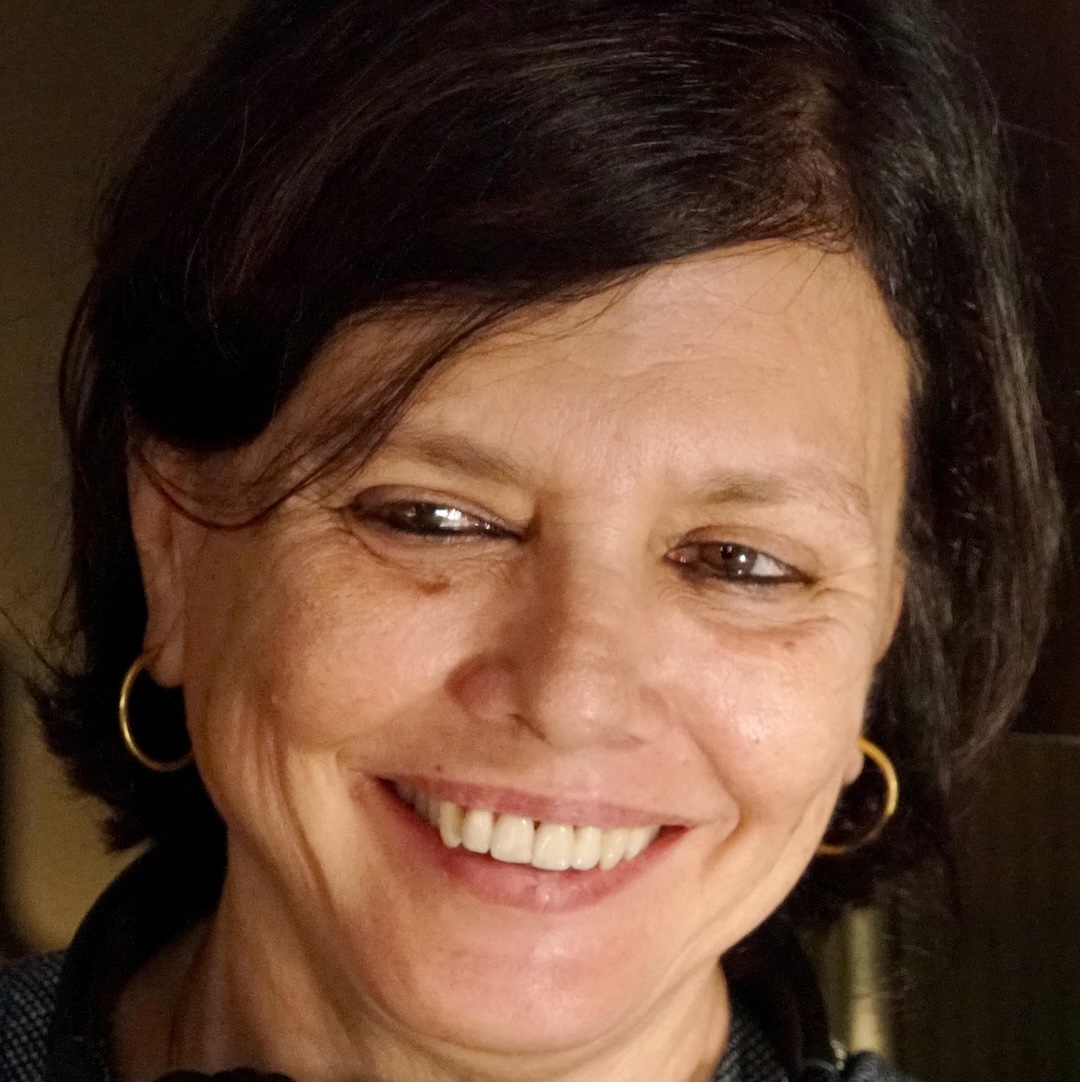
Director, screenwriter, photographer
Sooni Taraporevala is the director, co-producer and co-writer of the 2024 Amazon Prime series Waack GIrls. She also wrote and directed the 2020 Netflix movie Yeh Ballet. Her directorial debut, Little Zizou (2008), won 11 international awards. Her first screenplay, Salaam Bombay! (1988) began her long association with director-producer Mira Nair; the film was nominated for an Academy Award, won more than twenty-five awards worldwide, and earned Taraporevala the Lillian Gish Award from Women in Film, Los Angeles. Sooni wrote the screenplay for several other movies, including Mississippi Masala and The Namesake (based on Jhumpa Lahiri's book). Sooni's photographs have been in group shows at London's Tate Modern and New York's Met Museum, and they're in the collections of museums worldwide, including the National Gallery of Modern Art in Delhi and New York's Met Museum. In 2014, the President of India awarded Sooni the Padma Shri, one of the highest civilian honors.
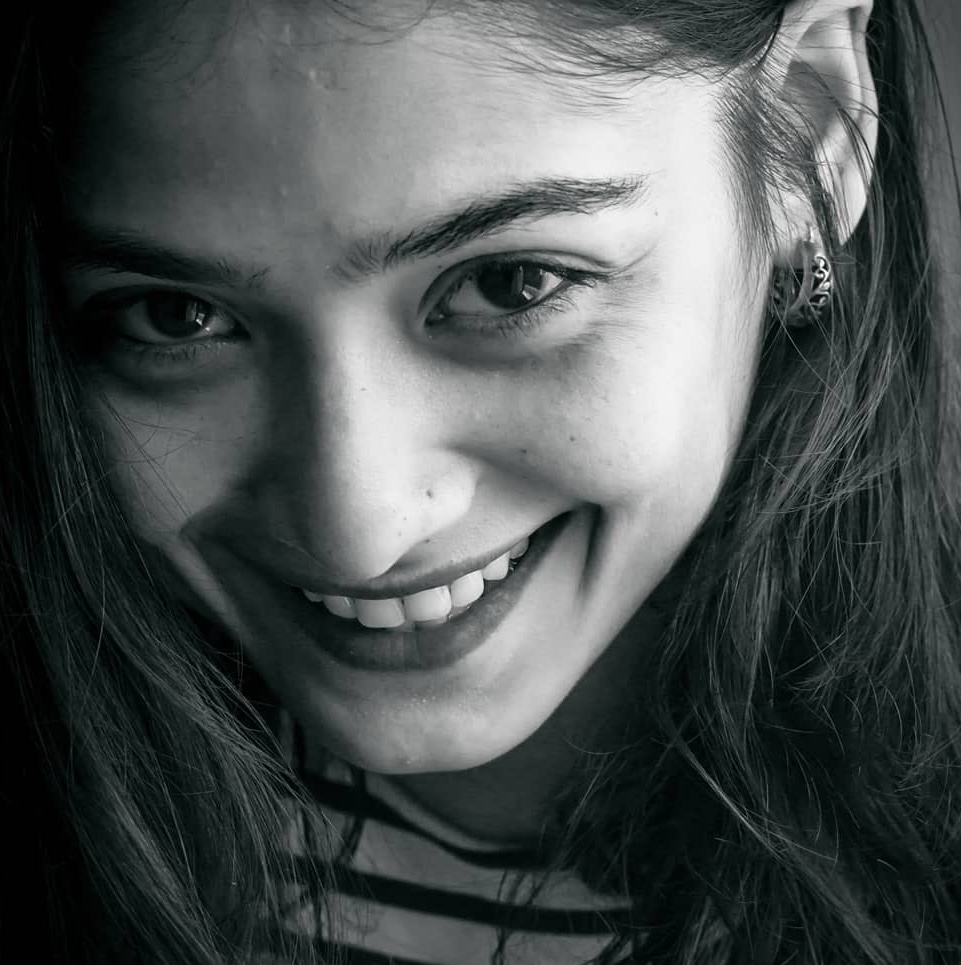
Dancer, Actor, Choreographer, Teacher, Model
Mekhola Bose was born and raised in Kolkata, West Bengal and currently resides in Mumbai, Maharashtra. As a street-style dancer, she is known for specializing in the '70s dance known as punking/waacking, which was born in the queer clubs of Los Angeles. With a diploma in contemporary arts, Mekhola has dabbled in styles such as Bharatnatyam, Kathak, jazz, tap dancing, and ballet; she learned various street dance styles such as locking, breaking and popping. As a choreographer and dance teacher, Mekhola has coached 500+ students and teams across India, and she competed in dance battles for the past decade. Mekhola stars in the 2024 Amazon Prime original drama series "Waack Girls" directed by Sooni Taraporevala; Mekhola also had a featured role in the 2020 Netflix movie Yeh Ballet. Aside from dancing and acting, Mekhola works as a model, and has a passion for drumming. As a student and teacher, she continues to pursue her passion for the performing arts.
